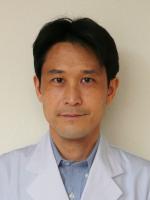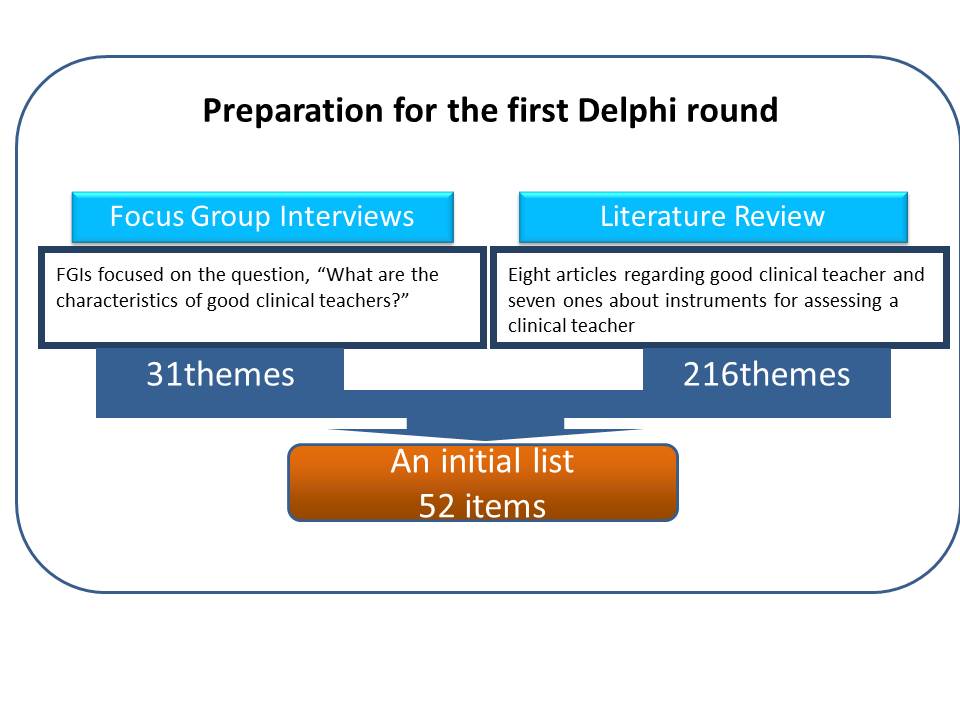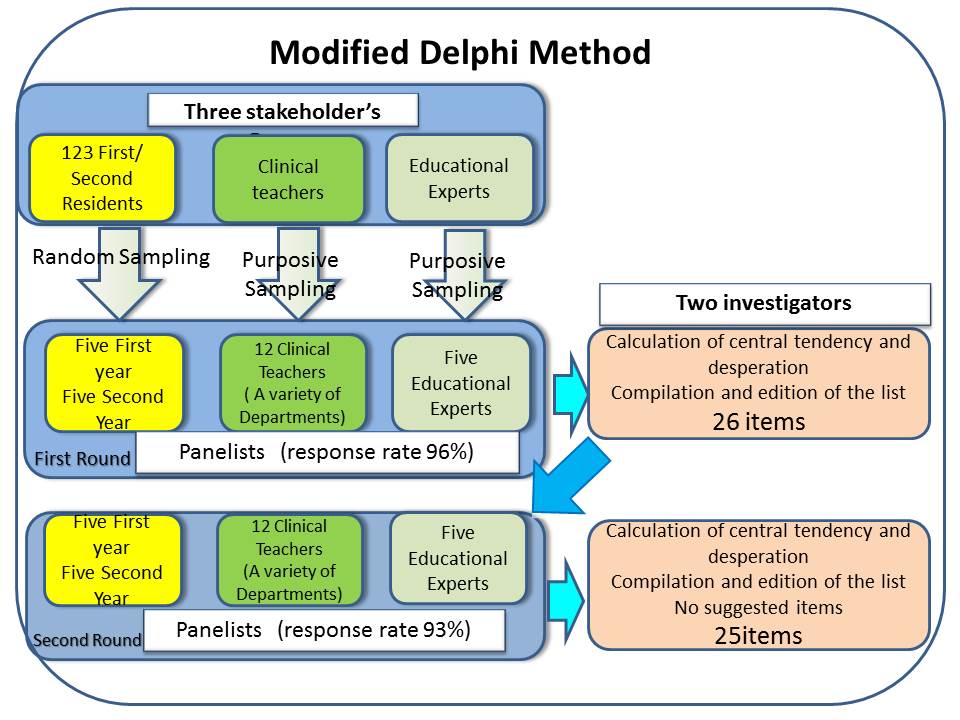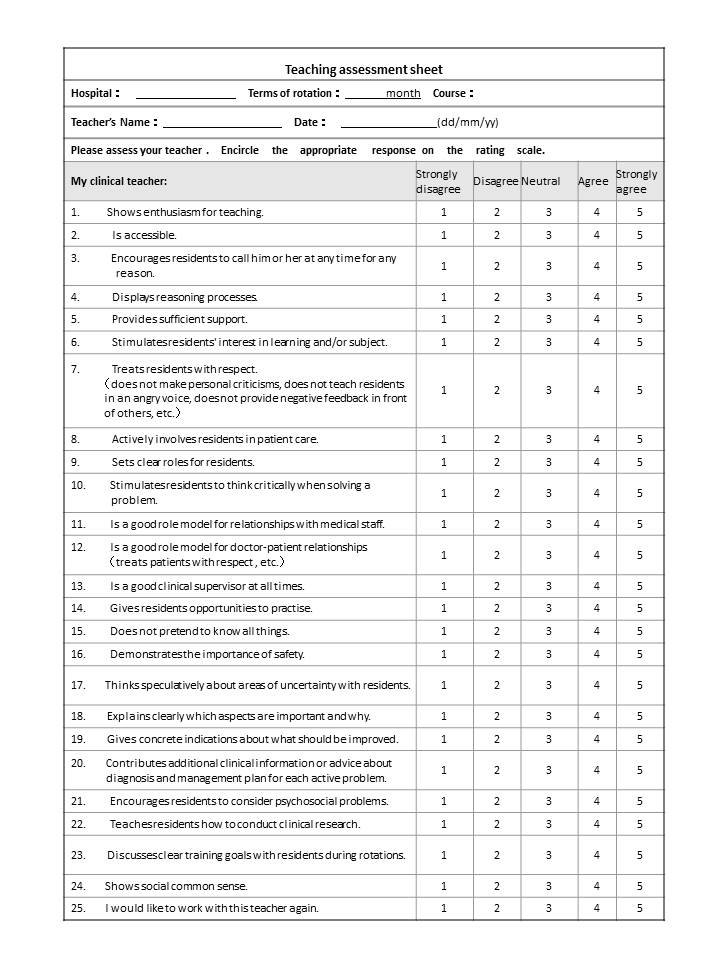


Theme
The Teacher
INSTITUTION
Kyushu University
Maastricht University
Saga University Hospital

No valid instruments for evaluation of clinical teaching within Asian cultures have been reported within the literature.?The majority of instruments have been published in the field of medical education originate from Western countries. One of the factors which is heavily influenced by cultural issues when developing evaluation instruments is the content validity of an instrument.
Content validity can be determined by surveying experts’ opinions regarding the adequacy and representativeness of items or by including items that are used in similar settings. Considering its sensitivity to cultural factors, we focused on content validity in developing an evaluation instrument tailored to the Japanese culture.
Japanese cultural background
Like many East-Asian countries, Japan’s cultural and philosophical background is grounded in Confucianism. In the philosophical and cultural history of East Asia, Confucianism has endured for over a thousand years as the basic social and political value system. In Confucian philosophy of human nature, propriety of behaviour is the cornerstone of good social relationships, and the study of human nature and human motivations is guided by four principles that directly affect social relationships: humanism, propriety, wisdom and liberal education. Consequently, patterns of interpersonal relationships in East-Asian cultures differ markedly from the individualistic relationship patterns of Western cultures, such as North American culture. Basically, Confucian ethics are grounded in relationships and situations rather than in absolute and abstract values. Moreover, cultures influenced by Confucianism are generally characterized by a strong power distance and consequently favour communication behaviours that support hierarchical relationships. Confucius contended that the stability of society depends on unequal relationships between people, who have mutual and complementary obligations: the junior partner owes the senior respect and obedience; the senior partner owes the junior partner protection and consideration. As a result, Japan is categorized as a high power distance society with communication behaviours that are in contrast to those of low power distance societies, which typically strive for reduction of distance and promote egalitarian, non-hierarchical relationships.
Aims: To develop an instrument sensitive to the Japanese culture and with good content validity for evaluating a clinical teacher.
Modified Delphi approach was used, involving in three groups of stakeholders (5 education experts, 12 clinical teachers and 10 residents)


This is the first validated instrument for assessing clinical teachers reported from Asian countries.
The instrument has similarities and differences compared with instruments developed in Western countries.
Our findings suggest the content of the instrument should not be universal, but cultural aspects should be taken seriously.
-
Educational practice is culture specific and research findings in one area may be of limited value to practice settings in other cultures.
-
One of the factors that play an important role in developing an evaluation instrument and which is highly susceptible to cultural influences is the content validity of an instrument.
-
In determining the content validity of instruments for assessing clinical teachers it is important to take account of cultural aspects.
-
In medical education more consideration should be given to factors related to cultural and geographical background.
Two rounds of Delhi were conducted. Through the procedure, 52 prospective items were reworded, combined or eliminated. Finally, a 25 item instrument was developed.
1. The first Delphi round
Of 27 panellists, 26 (96%) returned a fully completed questionnaire. The 25 items with the highest ratings were maintained. In response to suggestions from panellists five items were reworded and eight items that were similar in meaning were combined.
2. The second Delphi round
Of 27 panellists, 25 (93%) returned a completed list. All items had standard deviations <1.0, so no third round was necessary. We concluded that consensus was reached. We had thus obtained a 25-item instrument for evaluating clinical teachers.

The similaliries
The below items seem to reflect aspects of clinical teaching that are relevant to both Western and Japanese settings and apparently not susceptible to cultural differences.
The teacher:
1. shows enthusiasm for teaching.
2. is accessible to residents/students.
3. provides sufficient support.
4. treats residents with respect.?
5. actively involves residents in patient care.
6. sets clear roles for residents.
7. is a good role model for relationships with medical staff.
8. is a good role model for doctor-patient relationships.?
9. gives concrete indications of what should be improved.
10. contributes additional clinical information or advice about diagnosis and management plan for each active problem.
The differences
1. Item 16 ”The teacher demonstrates the importance of safety ”
It is associated with medical risk management, which in Japanese hospitals is currently a major issue, with the Japanese Ministry of Health, Labour and Welfare emphasizing the urgency of addressing this problem. As a result, this topic is included among the objectives of Initial Postgraduate Clinical Training, and consequently has found its way into the evaluation questionnaire.
2. No items relating to independent, active or self-directed learning in this instrument.
The item “promotes self-directed learning” was ranked 38th out of 51 items in the first Delphi round, and consequently eliminated from the instrument. It is quite conceivable that this is an effect of Japanese cultural factors. According to Hofstede, in low power distance societies (low hierarchy) teachers tend to treat students as equals and students put value on independence, whereas in high power distance societies, such as Japan, students are dependent on teachers and value conformity. As Japan is a high power distance society due to its Confucian background, stakeholders are only to be expected to give no priority to self-directed learning.
3. Item 24 “The teacher shows social common sense”
It was an item that was added by the panellists. The comparison with other instruments revealed no comparable items and consequently this particular item appears to be quite unique to the Japanese instrument. Teaching social common sense is not a medical subject. It represents a concept that is typical for a high power distance society which, like Japanese society, is steeped in the values of Confucianism, where the junior partner owes the senior respect and obedience. Students treat teachers with respect, even outside the educational setting, and disagreements and confrontations, which might be considered normal in high individualism cultures, are actively avoided. We think that the panellists valued teaching social common sense because, in accordance with the values of their culture, they expect clinical teachers to be respected as seniors while also respecting proper social norms.
 Send Email
Send Email